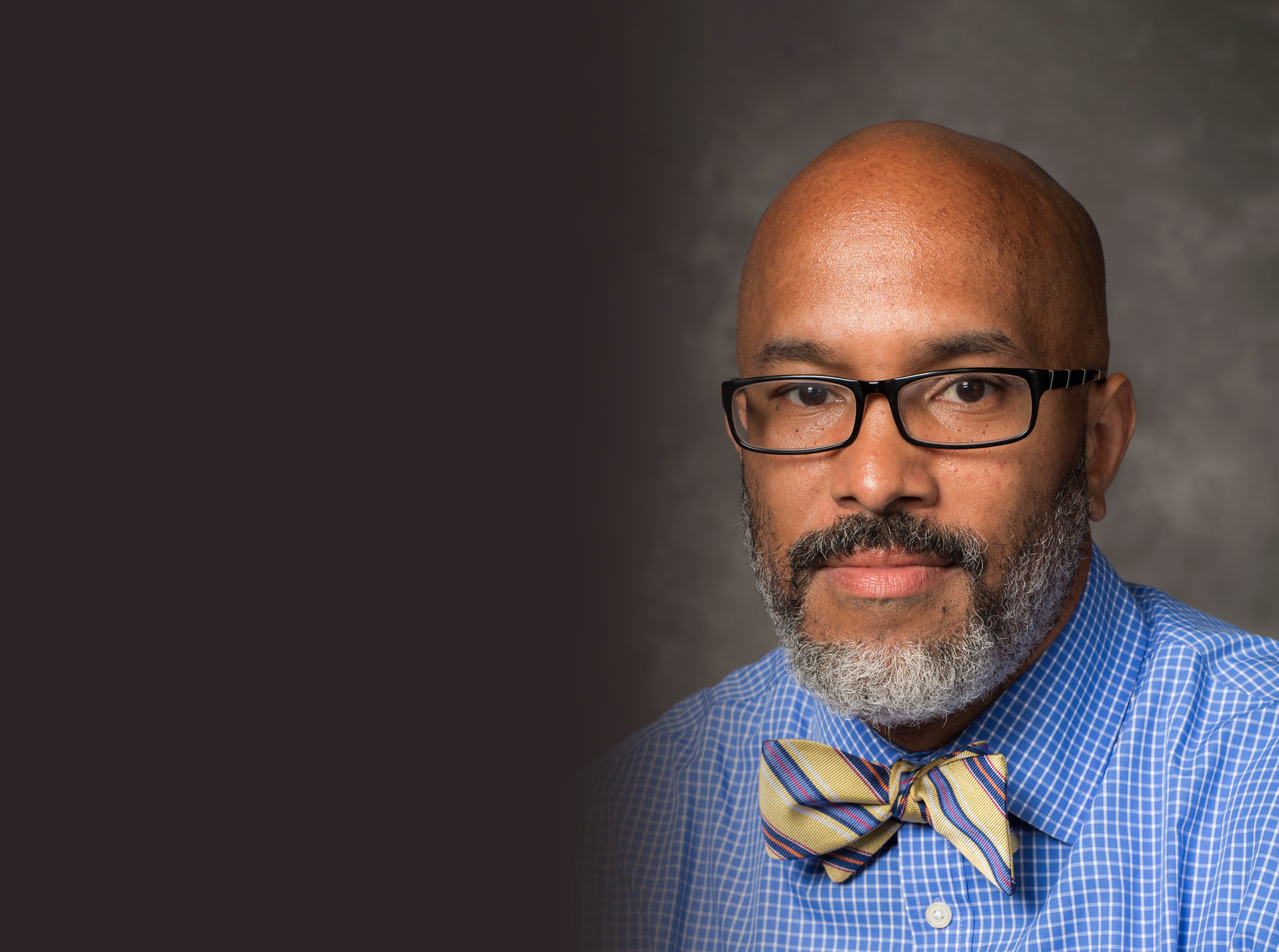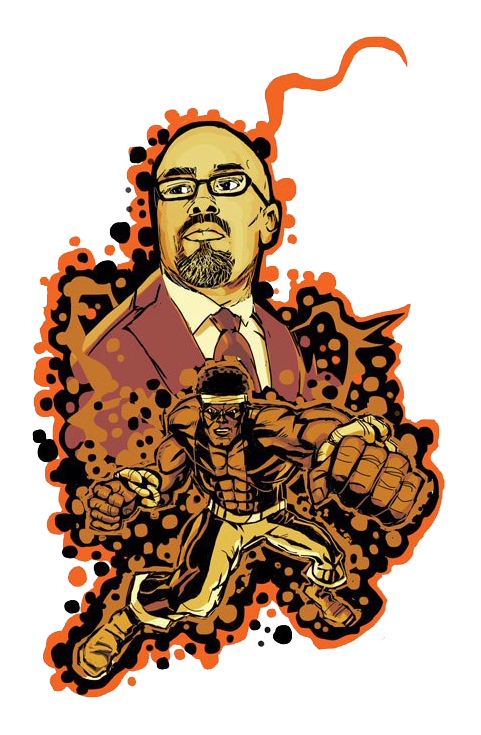
Jonathan Gayles
Critical Black Masculinity: From Birth of a Nation to Wakanda
Dr. Gayles uses multiple methods to critically examine the construction and representation of black masculinity
ABOUT
Societal understandings of Black masculinity continue to endanger Black lives. These understandings do not reflect the self-actualized perspectives of Black men and the authentic performance of Black masculinity. Instead, they are the of White supremacist articulations of Black manhood that render Black men as dangerous – a threat to be mitigated and, if necessary, eliminated completely. There is no doubt that such ideas, imagined as they may be, have deadly consequences in the real world.
Dr. Jonathan Gayles critically considers these ideas and their consequences within the realm of popular culture. He produced the award-winning documentary on African-American comic book superheroes entitled “White Scripts and Black Supermen: Black Masculinities in Comic Books” (distributed by California Newsreel). The American Culture Association/Popular Culture Association awarded the documentary the Peter Rollins Best Documentary Film Award for its groundbreaking engagement of the representation of Black masculinity in the genre and in popular culture more broadly. The film continues to receive screenings across the globe. He is also a co-founder of the Schomburg Center’s Black Comic Book Day that has, since its inception, provided thousands of attendees with exposure to more humane and whole representation of Black life in the comic book and speculative fiction genres. Dr. Gayles lectures extensively on the social construction of Black masculinity and the representation of Black masculinity across many domains – across the United States and internationally. He and his work has been featured in a number of television, film and radio programs including AMC’s “The Color of Comics” and HBO Max’s “Milestone Generations.”
His critical analyses of Black Panther (2018) and Wakanda Forever (2022) are timely and extend his considerations of Black masculinity to include both historical, current and afrofuturistic representations of Black life. These analyses also include recent disruptions in these patterns of representation including HBO’s Watchmen (2009), and Lovecraft Country (2010) and Beast(2022), starring Idris Elba.
Dr. Gayles is Professor and Chair of Africana Studies at Georgia State University. He is a graduate of Morehouse College and the University of South Florida. His first love is teaching, and he regards every opportunity to present as an opportunity to teach.
Artwork by: John Jennings
AVAILABLE TALKS
White Scripts and Black Supermen: Black Masculinities in Comic Books
Dr. Gayles screens his ground-breaking and award-winning documentary film about the representation of Black masculinity in early Black superheroes. Following the screening, Dr. Gayles participates in an extended Q&A with the audience.
Fascination and Fear: Black Masculinity in Popular Culture and Beyond
In this presentation, Dr. Gayles considers the many contexts within which the Black masculine body is socially constructed and represented. Using a broad array of historical to current media, Dr. Gayles demonstrates that the continuing White imagination of Black men have real-world consequences.
Wakanda: Imagining Black Past and Futures
In this presentation, Dr. Gayles engages the history of Wakanda and the Black Panther across a number of media, including comic books and film. With an Afrofuturist lens, he uses images and video to challenge the audience to consider the power of media that center Black life. He also considers the potential shortcomings of Wakanda that reflect continuing tensions around the articulation and understanding of Black life - even in imagined spaces.
testimonials
“Dr. Gayles was engaging, witty, and thought provoking… an outstanding presentation.”
– Kerry Raadt, Director of College Events – Carleton College
“Jonathan Gayles was an inspiration. His talk on African-American representation in comic books was dynamic and thought-provoking, connecting with the audience in a very direct way, and provoking energetic discussion. A real winner!”
– S. Elizabeth Bird, Ph.D., Director, Humanities Institute – University of South Florida

